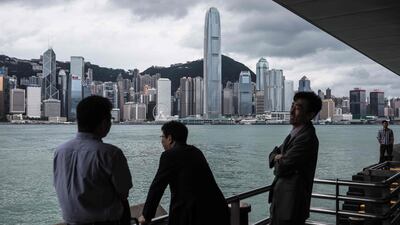Hong Kong’s sky-high prices and low affordability rank it as one of the riskiest property markets for Savills Investment Management, which is avoiding the city in favor of Japan and Australia.
“Hong Kong is highly, highly expensive,” Kiran Patel, who helps manage US$18 billion as chief investment officer at Savills Investment, said in an interview in Singapore. “Even with the lowest cost of capital, it is hard to justify today. We don’t think you can keep going up one year after another.”
Hong Kong’s home prices keep soaring higher, climbing 11 per cent since the start of the year to continue a nine-year bull run. Commercial property prices in the city have also set a slew of records this year. Li Ka-Shing’s CK Asset Holdings sold its 75 per cent holding in The Centre for HK$40.2bn ($5.15bn), a record for a Hong Kong office tower, according to reports earlier this month, while a carpark in the Central district slated for redevelopment fetched HK$23.3bn earlier this year.
Hong Kong was ranked the least affordable city to buy a home, according to the UBS Global Real Estate Bubble Index. Real incomes have virtually stagnated in Hong Kong for many years, so housing is less affordable than in any other city surveyed and the average living space per person amounts to only 14 square metres, the UBS report said.
______________
Read more:
Saudi Arabia’s PIF sets up real estate refinance company
Is now the time for Gulf investors to buy London property?
______________
Savills last year sold out of a residential development joint venture in Hong Kong after cost overruns and planning delays, Mr Patel said. The investment yielded an internal rate-of-return of just 7 per cent, instead of the expected 20 per cent, he said.
While Singapore is more attractive than Hong Kong, both markets have tight supply and are very volatile, Patel said. Still, he is scouting for offices in Singapore as leasing is picking up and the market seems to be bottoming out. Savills sold a couple of Singapore office assets last year as the fund investing in them was maturing, he said.
Japan remains Savills’ most attractive market, given tight property supply and cash flowing into the system, Patel said. Savills also likes Australian property as the economy remains robust and offers stable annuity income.
“We would like to grow in Asia, but there is an abundance of capital and a shortage of assets,” Patel said. “We don’t want to shoot the lights out, we aren’t in the high end opportunistic-risk space. We are looking more for annuity type income so we focus on developed markets like Japan and Australia and some emerging markets like China.”

